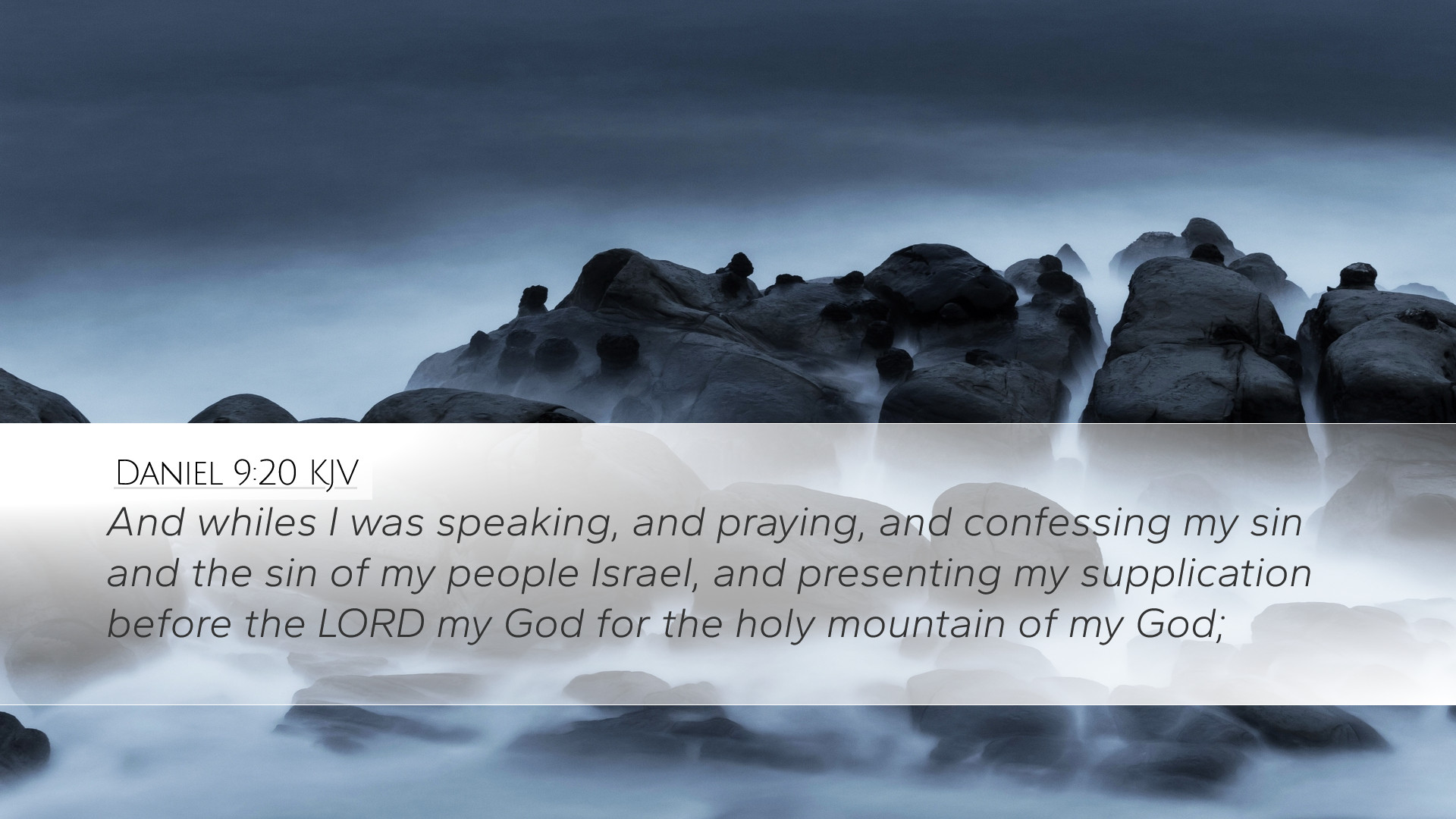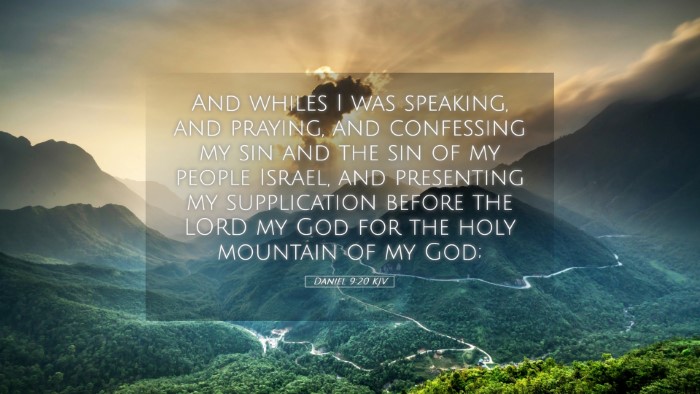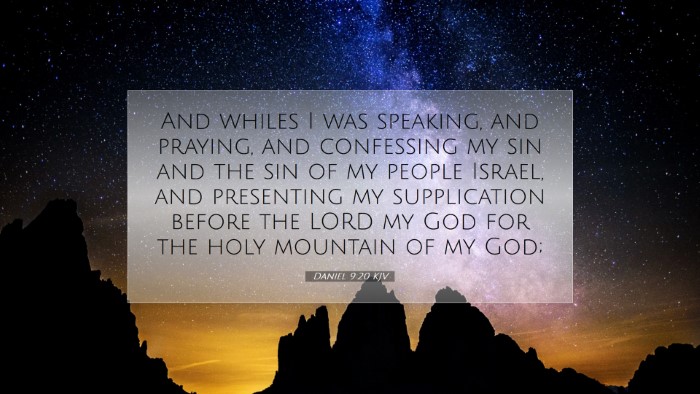Commentary on Daniel 9:20
Verse Text: "And whiles I was speaking, and praying, and confessing my sin and the sin of my people Israel, and presenting my supplication before the LORD my God for the holy mountain of my God."
Introduction
The verse of Daniel 9:20 serves as a profound moment in Daniel's life of prayer and intercession for his people Israel. It highlights the sincerity of Daniel's repentance and his earnest desire to seek God’s mercy for both personal and national sins. In this commentary, insights from public domain commentaries will be merged to reveal the theological depth and the implications of this text.
Context and Background
The Book of Daniel, particularly in this chapter, is set against the backdrop of the Babylonian exile. Daniel's prophetic insights and historical awareness come together as he prays for restoration. This chapter is notable for its themes of confession, supplication, and the longing for God's people to return to their land and worship.
Historical Context
- Exile: Daniel's prayer is brought forth in a time when the Israelites were captive in Babylon, a period of significant dislocation and despair.
- Prophetic Yearning: As described in earlier verses, Daniel understands that the exile is rooted in the disobedience of Israel (Daniel 9:2).
The Act of Prayer
Daniel’s approach to prayer in this verse showcases several important elements of a heartfelt supplication:
1. Speaking and Praying
Daniel is not silent in his worship; he actively engages in conversation with God. Matthew Henry notes that true prayer involves both speaking and listening, emphasizing that prayer is a dialogue with God.
2. Confession of Sin
Central to Daniel's prayer is the confession of sin. He acknowledges not only his own shortcomings but also those of his people. Adam Clarke remarks that Daniel’s confession reflects a deep awareness of the corporate nature of sin and its consequences. There is an acknowledgment of guilt that is essential in seeking divine mercy.
3. Supplication and Intercession
Daniel's supplication is directed towards God, and he presents his needs plus intercedes for the nation. Albert Barnes points out that Daniel's request is for the “holy mountain of [his] God,” which symbolizes the hope of restoration and the return to divine favor.
The Theological Implications
Daniel 9:20 provides rich theological insights regarding sin, repentance, and God's mercy:
1. Understanding Sin
Sin is acknowledged as a barrier between God and His people. Daniel's honest confession serves as a model for believers, illustrating that recognition of our faults is a critical first step toward healing and restoration.
2. The Importance of Intercession
Intercession for others as demonstrated by Daniel is integral in the life of a believer. The collective nature of his prayer emphasizes communal responsibility in the eyes of God. As highlighted in public domain commentaries, believers are encouraged to stand in the gap on behalf of their communities.
3. The Assurance of God's Mercy
Daniel's posture exemplifies the hope that one can approach God with confidence because of His mercy. The theme of restoration in this chapter is consistent with the biblical narrative of redemption, reaffirming believers’ assurance in God's unfailing love.
Practical Applications
For pastors, students, theologians, and scholars, Daniel 9:20 presents several practical applications:
- Encourage Corporate Confession: Community leaders are urged to lead their congregations in collective acknowledgment of sin and a plea for divine mercy.
- Promote Active Intercession: Establish prayer initiatives that focus on both individual and communal needs, emphasizing the need for earnest supplication.
- Teach the Importance of Prayer: Utilize this verse to educate congregants on the significance of a prayer life that includes speaking, listening, and confessing.
Conclusion
Daniel 9:20 stands as a powerful testament to the effects of earnest prayer, confession, and intercession. As believers engage with this text, they are reminded of God’s readiness to forgive and restore. The rich insights from public domain commentaries encourage a deeper understanding of prayer as a transformative practice, leading to renewed hope and divine intervention in the life of individuals and communities.


